Webcasts
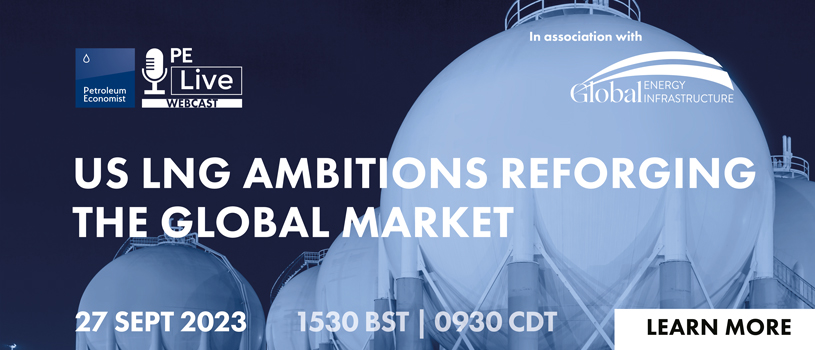
The US is on track to become the world's largest LNG exporter in 2023.
Recent expansion saw the US liquefied gas sector leapfrog Australia and challenge Qatar for the top spot. Rising American volumes are driving shifts in LNG markets and have proved a vital lifeline for Europe as the continent tries to weather an energy crisis.
As the US continues to expand gas production and export infrastructure, Petroleum Economist in association with Global Energy Infrastructure will explore the future of US LNG and how the global LNG market is shifting in response.
View On Demand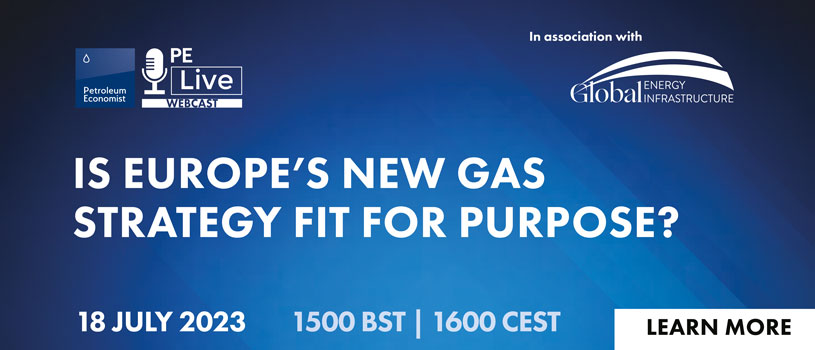
Europe’s policy-makers and energy industry finds its self in new territory as it pivots away from Russian gas. Old pipeline projects are being discarded as attention turns to the new infrastructure that needs to be in place to secure gas from elsewhere. The bloc is now competing with Asia for LNG, weighing up the right tactics to buy cargoes, looking at new sources of supply from US, Qatar and beyond and exploring opportunities close to home across North Africa and the East Med.
But will short-term energy security concerns leave much of Europe with a largely redundant insurance policy by the end of the decade as the region transitions away from fossil fuels? Or will gas play a crucial role in its energy mix given questions over the reliability of renewables in the long-term? Are the costs being incurred now worth it to ensure immediate supplies for the next couple of years and how useful will the additional infrastructure be further out? Is gas a primary fuel for Europe, a bridging fuel, a transition fuel or a back-up fuel and over what time period? And how will Europe approach buying gas from flexible suppliers like the US or more Asian-focused Qatar used to more long-term contracts? Is there a risk of Europe being underbuilt for the next couple of winters and overbuilt beyond that or is that a false narrative?
View On Demand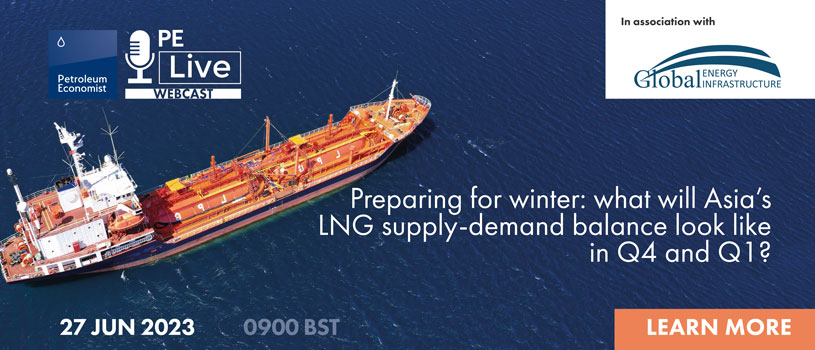
Date & Time: June 27, 2023; 9AM BST, 10AM CET, 4PM SST
A new dynamic has arisen in the global LNG market since Russia's invasion of Ukraine, pitting Asia's large-scale consumers against a newly gas-hungry Europe in competition for seaborne supply. Last winter was seen as crunch time, but the global market narrowly avoided gas shortages and renewed LNG price spikes thanks to the combination of a mild winter in the northern hemisphere, demand reduction measures, ample inventories and short-term ramp-ups in production. Since the winter, LNG prices have continued to moderate, which could give the impression that the time of crisis has passed. But significant risks still persist.
China, Japan and South Korea are the three top LNG importers in the world, so how are these LNG market giants preparing for next winter? Will the price-responsive, swing consumers of South Asia be squeezed out once more by the global competition for gas? Last year's volatility disrupted the LNG-to-power ambitions of emerging southeast Asian markets, particularly Vietnam, but what are the region's demand prospects now?
On the supply side, how much net capacity growth has taken place and how much of that additional volume is likely to make its way to Asia?
Register now to attend!
View On Demand
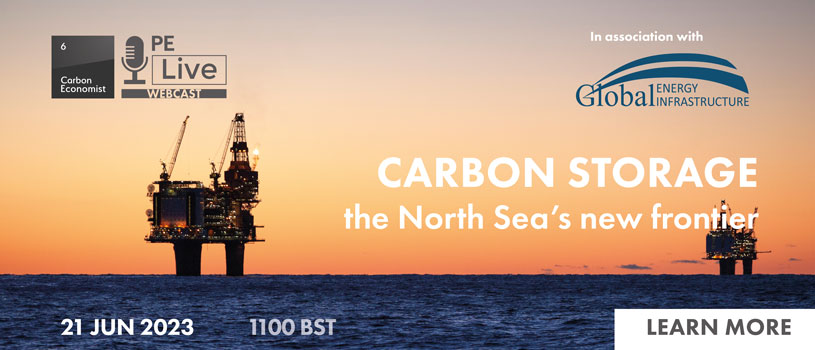
Date & Time: June 21, 2023; 11AM BST, 12PM CET, 5AM CDT, 6PM SST
The race is on to develop the North Sea’s vast potential as a carbon store as policymakers acknowledge the key role of CCS in achieving net-zero. Multiple projects are underway as oil and gas operators and other developers jostle for position in northern Europe’s emerging carbon management sector.
In this webinar, Peregrine Bush, Senior Director - Data and Technology, Global Energy Infrastructure and Stuart Penson, editor, Carbon Economist explore the key projects in the North Sea and discuss the opportunities and challenges presented by this growing sector.
Register to attend below.
View On Demand
Date & Time: May 10, 2023, 10am CST | 4pm BST | 5pm CET
How can refineries stay relevant in an industry pushing for renewable energy sources?
Focusing on North America, where the demand for fuel has remained strong, this webcast explores how refineries are satisfying domestic fuels demand without investing a significant amount of capital as witnessed in years past. With expert analysis/data taken from the Construction Boxscore database, viewers will gain insights into recent refinery closures, upcoming petrochemical and refining developments, and an overview in the rise of biofuels projects in North America.
Don't miss out on the invaluable insight and register to attend below.
Can't make it on the day? Register for the webcast and receive the link to watch it on demand 24 hours after the webcast was broadcast.
View On Demand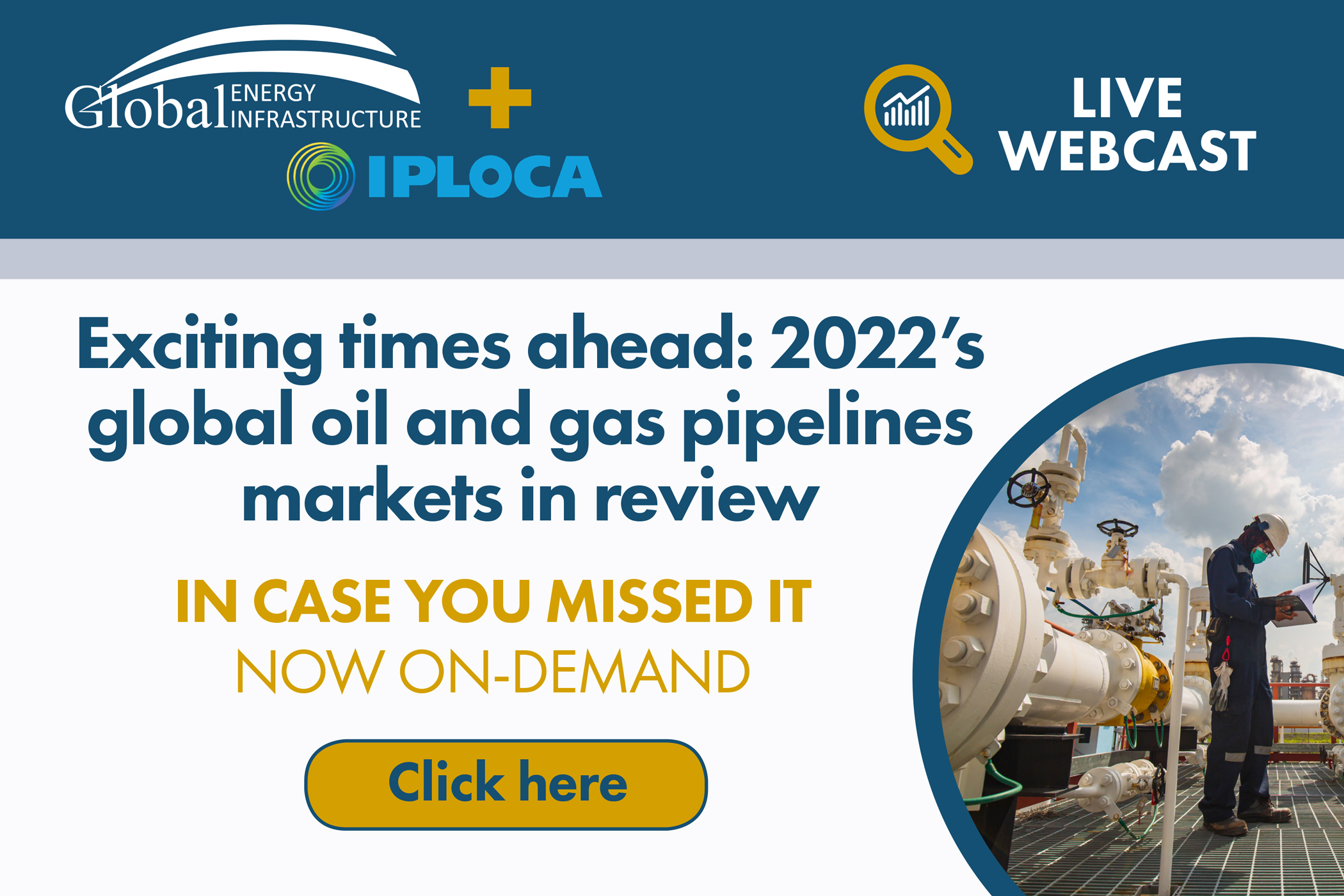
Last year saw the re-emergence of energy security and affordability as key trends in the so-called ‘energy trilemma’, joining the sustainability theme that has dominated the future energy mix conversation for some time. And while disruptions on Russian gas transit pipelines were part of the problem, for much of the rest of the world, there was a realisation that pipelines have a key role in delivering oil and gas securely and economically.
As such, a raft of projects globally made progress—some in terms of completion or continuing work, but many more moving to or towards FID or receiving renewed impetus to break down previous obstacles to their realisation. These projects set the scene for several years of exciting times for the sector, and GEI will review the changes in its database through 2022 to paint a picture of how the world’s oil and gas pipelines can be expected to evolve as we move into the mid-2020s.
Watch it anytime on demand by clicking on the link below.
View On Demand
Europe is increasingly seen as the main demand centre for green hydrogen with a commitment to domestically produce 10mn t/yr and import another 10mn t/yr by 2030. But offtake agreements are few on the ground and a traded market seems out of reach.
Join this compelling discussion between Hydrogen Economist, Global Energy Infrastructure and ICIS where our speakers will analyse how the lack of certainty around how Europe will certify ‘green’ hydrogen has affected projects to date, as well as forecasting costs for green hydrogen and ammonia.
We will also discuss some upcoming hydrogen projects from the European continent.
Our speakers for the webinar are:
 |
Jake Stones Hydrogen Editor, ICIS As Global Hydrogen Editor, Jake Stones leads ICIS’ editorial and pricing coverage and strategy, drawing from a wealth of experience in hydrogen production costs and projects. As a senior member of the ICIS energy editorial team, he covers key gas markets such as the British NBP and Dutch TTF, the global gas benchmark. |
 |
Polly Martin, Senior Hydrogen Reporter, Hydrogen Economist Polly joined PE Media Network in 2021 as a digital editorial assistant. She writes for Hydrogen Economist with a focus on decarbonisation and green hydrogen. |
View On Demand
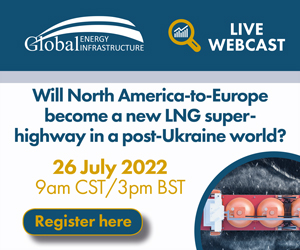
As Europe continues its pivot away from Russian pipeline gas, how long will North America continue to fill the void with increased volumes of LNG? Is it just a short-term fix, or a long-term solution? And what of Asia, as local players continue to sign 20-year SPA’s with future projects.
Global Energy Infrastructure teams up with Peter Ramsay, Editor-in-chief of Petroleum Economist to discuss the deeper impacts of the last few decades, analyse some recent trends and demonstrate how Global Energy Infrastructure’s database will provide you with the data you need to succeed in the field.
Some of the topics to be discussed include:
- Increasing US/Canada export capacity
- The scramble for more widespread European import terminals
- China keeps on signing long-term SPA’s
We will also discuss some upcoming LNG projects from around the world.
Join us on July 26, 2022 at 9am CST/3pm BST so you don't miss out - register your interest today!
View On Demand


